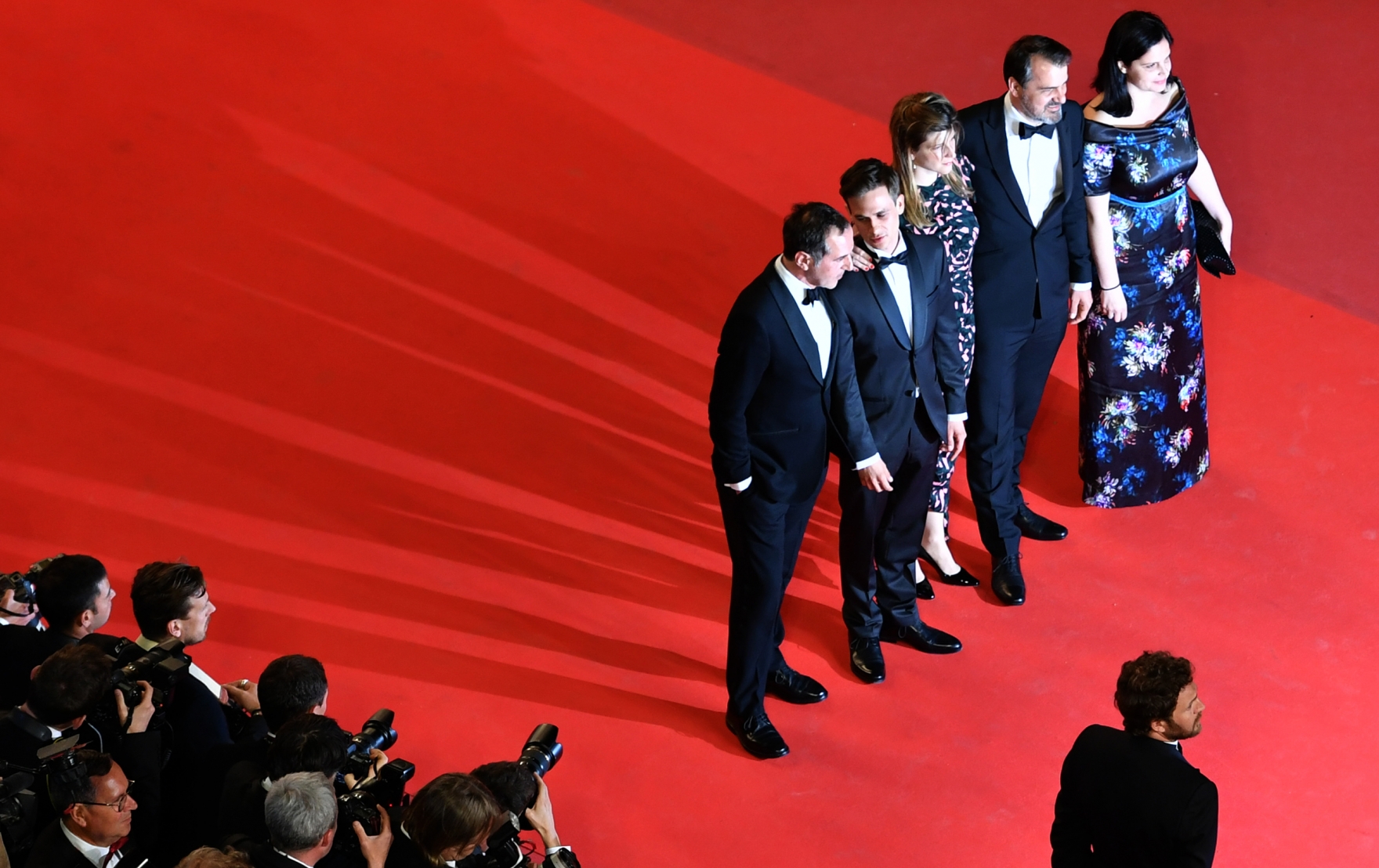2017: Another Shining Year of Hungarian Films
2017 started out strong for Hungarian cinema: Ildikó Enyedi’s sensitive movie ‘On Body and Soul’ was awarded the biggest accomplishments one could ever hope to achieve at the Berlinale: the prestigious Golden Bear, supplemented with the FIPRESCI, Ecumenical Jury and Berliner Morgenpost Reader’s Jury prizes. Later in the year it won Best Film in Sydney and was selected in Toronto, Zürich and many other festivals. But it wasn’t just the film itself that got acknowledged through important awards; Máté Herbai won the respectable Golden Frog at the Camerimage Festival for his cinematography and Alexandra Borbély became the Best European Actress at the European Film Awards, a first in the history of Hungarian cinema. And the story doesn’t end there: a few weeks ago ‘On Body and Soul’ was nominated for an Academy Award for Best Foreign Language Film.
.jpg)
Alexandra Borbély (MTI / EPA / Hayoung Jeon)
The moving black-and-white drama directed by Ferenc Török called ‘1945’ was also a big winner in 2017. Set in a small village in the wake of the Holocaust, it follows the ruthless leader and the locals who become increasingly anxious as two mysterious Jewish men head towards the village. The engaging narrative was a huge success all around the world, appearing first at the Panorama Programme of the 67th Berlinale and finding its way to the top, especially in the United States where it won awards at the Jewish festivals of Miami, Washington and San Francisco and was selected to be screened in San Diego, Toronto, Philadelphia, Portland and Pittsburgh. It won several other awards in Jerusalem, Berlin, Vienna and Melbourne, to name but a few.
There were many more reasons to be proud in May, at the 70th Cannes Film Festival. A regular contender, Kornél Mundruczó’s new film ‘Jupiter’s Moon’ was selected into the main competition. The film is about a young Syrian immigrant who drifts into Budapest with the sudden ability to fly and is helped by a doctor who lost his faith a long time ago. Beside Mundruczó’s film, a young talent attended the festival in the Cinéfondation section: Áron Szentpéteri presented his student film, ‘Invisibly’, about a real-life blind boy who meets a girl and tries to get closer to her but crosses one too many lines. The 30-minute film was subsequently selected for screening at Sarajevo, CinEast and Angers, amongst others.

Jupiter's Moon in Cannes
As for other short films, there were many more success stories in 2017, like Ádám Freund’s ‘Earthly People’, which was nominated for a Student Academy Award and selected to festivals such as Chicago International Children's Film Festival, Uppsala International Short Film Festival and Camerimage. The story follows a young boy and his family who is trying to cope with the loss of the father, through fantastic elements as well as a musical number. ‘Beautiful Figure’, directed by Hajni Kis, screened at more than 50 international festivals (including BFI Flare, Busan, Odense and Interfilm) and won a total of 12 awards. ‘Collapsed Lung’, which tells the story of a Hungarian middle-aged man and a Syrian refugee, premiered in Drama and later won the Grand Prize of Euroshorts in Gdansk.
Last year was also a revelation as film festivals selected more genre films into their programmes, including Hungarian science fictions, crime thrillers and film noirs, along with comedies and historical dramas. The time-spinning sci-fi ‘Loop’ by Isti Madarász won the main award in Trieste and was selected to Fantasporto in Portugal, where Roland Vranik’s drama ‘The Citizen’ won the award for Best Screenplay. At the Belgian crime film festival in Liège, Attila Till’s ‘Kills on Wheels’ won Best Screenplay, and ‘Strangled’ by Árpád Sopsits became the audience’s favourite. The psychological thriller that captured the rampage of the first Hungarian serial killer was also screened at the Transylvanian Film Festival and won two prizes in Parma, Italy: the “Violetta d’Argento” for Best Director and the award for Best Cinematography for Gábor Szabó.
.JPG)
The Whiskey Bandit
Other crime stories also fared well, including the biopic about one of the most famous bank robbers, entitled ‘The Whiskey Bandit’ and directed by the internationally reknown Nimród Antal, premiered at the 33th Warsaw Film Festival. ‘The Butcher, the Whore and the One-Eyed Man’, directed by János Szász and which also depicts a notorious love triangle between three sinful persons, had its world premiere in Gent, Belgium. Éva Gárdos’s ‘Budapest Noir’ had its own world debut in Chicago, and first-time director Csaba Vékes (supported by the Hungarian Film Fund’s debut film initiative, Incubator) premiered his comedy, ‘Behind the Column’, in Montreal.
2017 was also a milestone in bringing international attention to Hungarian documentaries. At the IDFA two young talents premiered their first feature-length films: ‘Granny Project’, by Bálint Révész, introduced the story of three incredible grandmothers and their special relationship with their grandsons, one a Brit, another a German and the third a Hungarian, based on the director himself; and Dorottya Zurbó premiered at the festival’s first-film competition with ‘The Next Guardian’, about a family’s life protecting ancient relics in the heart of the Himalayas. This film also got selected to Jihlava, along with Péter Forgács’s ‘Picturesque Epochs’ and the short avant-garde documentary ‘8th October 2016’ by Péter Lichter and Borbála Máté. By the end of the year, another documentary made Hungarian film history: ‘A Woman Captured’ by Bernadett Ritter-Tuza was invited to the World Documentary section of Sundance Film Festival, making it the first feature-length Hungarian film to screen in competition in Sundance. In the heartbreaking story, the director meets and follows a 50-year-old woman who has been kept a slave for 10 years in a household and who finally decides to make a move and escape her prison – beside the director herself.
